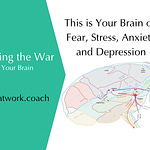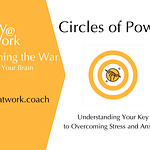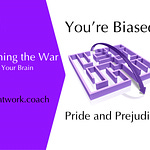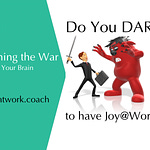Trust is the most fundamental building block of any relationship whether in business, politics, marriage, family or friendships. In the real world, trust signifies different things to different people but it frequently boils down to one point: trust is essential to your success. Once lost, rebuilding trust is one of the most difficult things to accomplish for the reason that the thought of the betrayal can forever haunt the aggrieved. Rebuilding trust is definitely tough, but it’s not something that can be ignored. There's a well-known psychological study, conducted by Walter Mischel in the 1960s, which explored delayed gratification in four-year-olds. Individually, children were seated in front of a marshmallow and the researcher told them that they could eat the marshmallow right then, but if they waited for the researcher to return from a brief errand, they would receive a second marshmallow. Some kids ate the marshmallow within seconds, but others waited up to 20 minutes for the researcher to return. 14 years later, the researchers found out that the children who had delayed gratification were more trustworthy, more dependable, more self-reliant and more confident than the children who had not controlled their impulses. Trust is largely an emotional act, based on a prediction of reliance. It is fragile, and as an egg shell, one slip can shatter it. Trust pervades every aspect of our everyday lives closely. It is fundamentally essential in the healthy functioning of all of our relationships with others. It is even tied to our wealth: in a Scientific American article, Dr. Paul J Zak, a neuroeconomist at Claremont Graduate University, found out that trust is between the strongest known predictors of a country's wealth: nations with low levels use to be poor. In line with Dr. Zak, societies with low levels of trust are poor, for the reason that the inhabitants undertake too few of the long-term investments that originate jobs and raise incomes. Such investments depend on people trusting others to fulfil their contractual duties. In searching to comprehend what was physically happening in the human brain that instilled trust, he found out that oxytocin, a hormone and neurotransmitter, increases our propensity to trust others in the absence of threatening signals. We are indeed wired to trust each other, but, as Dr. Zak points out, our life experiences may "retune" the oxytocin to a different "set point", and thus to different levels of trust all through the course of life. When we are brought up in a secure, nurturing and caring background, our brains release more oxytocin when somebody trusts us resulting in our reciprocating that trust. By contrast, early experiences of pressure, uncertainty and isolation interfere with the development of a trusting disposition and reduce oxytocin levels. In today's untrusting climate, it is not surprising that study after study shows a decline in the trust that individuals have in business and political leaders, and in institutions. The Edelman Trust Barometer for 2009 found out that nearly two out of every three adults surveyed in 20 countries trust corporations less now than they did a year ago. And a 2004 study by Towers Perrin, shows that only 44% of junior workers (those gaining less than $50,000 per year) trust their employers to say them the truth. This is an alarming statistic, specifically given how much time, effort and concern are expended in crafting leadership communications to workers. Even although we are faced with a disaster in trust, and have ample examples of leaders who have eroded their employees', customers' and shareholders' trust, I believe that the majority of leaders walk the path of trustworthiness. If truth be told, it might be harrowing for many leaders if they receive feedback that others do not find them trustworthy. But being trustworthy, in someone's eyes, consists of their own perceptions, and can be strongly influenced by the fracture of trust in the world
Share this post

LA 015: The Power of Trust to Succeed
www.joyatwork.coach
LA 015: The Power of Trust to Succeed
Feb 27, 2016
Joy@Work Podcast
Helping marketplace leaders #UnStuck their true potential to thrive in life and leadership to build a successful, sustainable business with collaborative, high performance teams and Joy@Work with practical, neuroscience-based AdvantEdge Guides and coaching.
Helping marketplace leaders #UnStuck their true potential to thrive in life and leadership to build a successful, sustainable business with collaborative, high performance teams and Joy@Work with practical, neuroscience-based AdvantEdge Guides and coaching.Listen on
Substack App
RSS Feed
Recent Episodes














LA 015: The Power of Trust to Succeed